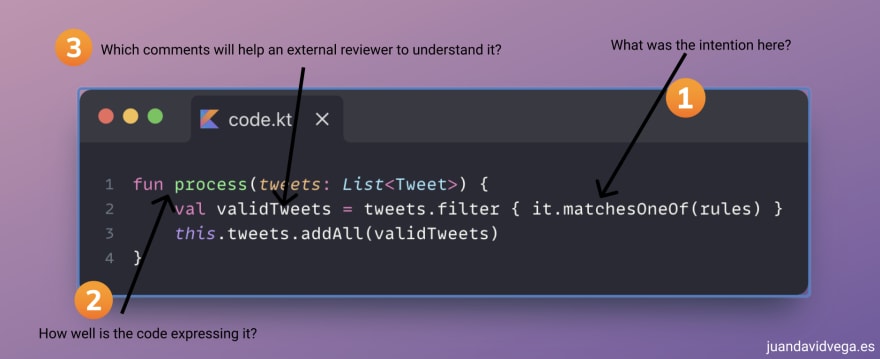Well, the title is a little tricky. It will take you 30 minutes every day, but I promise, it is effortless.
"I'm not a great programmer; I'm just a good programmer with great habits."
― Kent Beck
How do the first 30 minutes of your day usually look?
Like most software engineers, I usually spend over 60% of my workday (about 5 hours) coding. So taking away 30 minutes means nothing on the total time of the day and the project's whole time.
You might wonder "why the first 30 minutes and not the last, or somewhere in the middle?". Easy, the actions that I propose take much energy and focus when done well, so it's better to do them when you are still fresh!
My 30 minutes
All this practice works well for my current context and environment. You can start copying me and looking for new ones or adapted versions that fit you.
Self code reviews
I always start the day by doing a code review of the last code that I wrote. I asked myself what I was trying to achieve, how well the code expressed it, and what comments or clarification an external reviewer might need to understand my decisions. So, I have three steps:
- What was the intention here? (Intention)
- How well is the code expressing it? (Naming)
- Which comments will help an external reviewer to understand it? (Comment)
Once I have answered the questions, I start again, using the answers to rethink intention, naming, and comments. For instance, I ask myself: How can I change code naming to include the value of the additional comment for an external reviewer?
Starting from scratch
There are always at least two ways of coding the same thing. A good exercise is to ask me every day: What if I use the other approach I discarded?
I don't implement it. I usually spend some minutes checking which file would change. The goal is to figure out if I could improve my current solution by evaluating it from another point of view. I might don't need to change a single line of code.
Among the previous exercise, I also wonder:
- How much code do I write to solve the actual problem? Usually, the simpler the code is, the easier it will be to change if required. Sometimes we overcomplicate the solutions to cover future use cases that might never arrive.
- Change some tests data and code pseudorandomly. I don't do mutation testing with an automated tool, but I manually delete some lines and change some inputs and expected values to verify how the tests break.
Do you dare to test this tomorrow and tell me how it well?
"No matter the circumstance you can always improve. You can always start improving with yourself. You can always start improving today."
― Kent Beck, Extreme Programming Explained: Embrace Change
References
Firstly, I hear from this practice, with a different approach, of reviewing previous day code from Carlos Blé




Top comments (0)